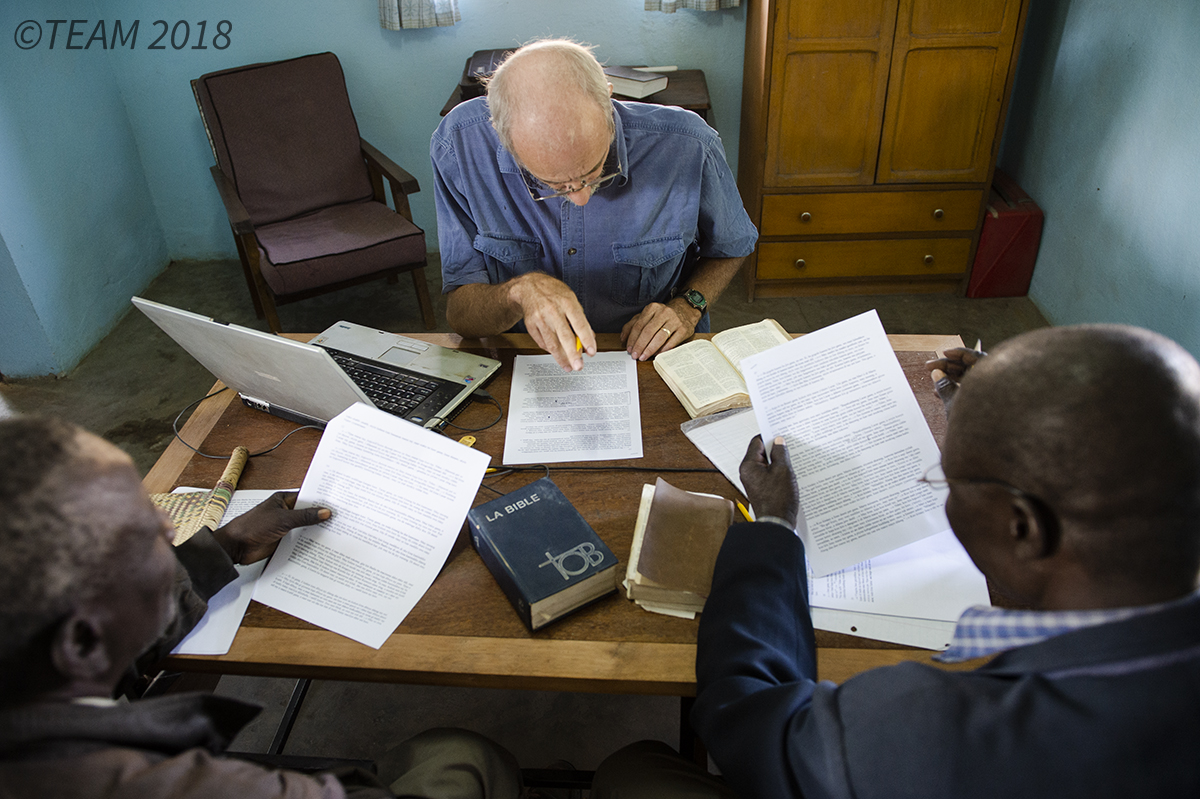
Prayer Focus
Why Translation Work is Vital for Kingdom Growth [March Prayer Focus]
March 4, 2019
by Mark Watson

Down through the years, written communication has served as a vital way to spread knowledge.
Even God chose to deliver His message of salvation primarily through the written word.
But what if you didn’t have His written Word in your language? How would your relationship with the Father look if you couldn’t study the Scriptures for yourself? How would you even understand what He’s like?
There are about 2,000 language groups who grapple with that reality today.
That’s why missionaries around the world serve through translation ministries. It’s hard work, but the long-term payoff is immeasurable.
This month, pray with us for translation ministries. Pray that the taxing work of these missionaries will bring generations of souls to Christ.
1. Pray that translations teams will be organized and work well together.
Translation projects are often meticulous and complex. They usually involve a team of translators, consultants, publishers and more. Manuscripts change hands several times. They are tediously checked before even being considered for publication.
The logistics behind translation projects can become muddled and complicated fairly easily.
TEAM missionary Jon Christiansen is working on translating AWANA materials into Zimbabwean language Shona. But before he can even use the materials — let alone publish them — he must first get permission from AWANA International.
“We went ahead and worked on the translation of two years of AWANA curriculum,” John says. “This is almost complete, but we probably won’t publish it unless AWANA Zimbabwe requests that we do so. … Pray with us as we seek permission from AWANA International and organize four different levels of camp curriculum for the students to use.”
In all of these complex steps, pray that missionaries don’t lose sight of the end goals. Pray that decision-making will be straightforward and clear.

Translation ministry begins with the Bible, but it extends to kids’ program curricula, books on Christian life and other materials to help people find their Savior.
2. Ask God to clearly guide missionaries to the right translation projects.
There are thousands of languages that are desperate for Bible translations. But qualified translators for each language are often few and far between, so it’s easy for workers to feel pulled in many directions.
TEAM missionaries Grace and Keith McCune serve as remote Bible translation consultants for translation teams around the world. As teams translate the Bible, the McCunes check passages and make sure the most appropriate words are being used.
And there’s no shortage of projects that need their help.
With so many worthy translation projects happening around them, it’s vital that Grace and Keith only take on what they can handle.
Pray that God will make it clear to missionaries which projects they should focus on. Pray that missionaries will have open hearts and follow His direction.

Translation is intense work that takes years of checks and balance to ensure accuracy. Pray that missionaries will know which projects to start with.
3. Pray that translators will know what Scripture to prioritize when time is short.
Missionaries can spend their entire careers on a Bible translation and still not have time to get it all done.
TEAM missionaries Diane and Mark Vanderkooi serve the Kwong tribe in Chad. They’re two of only three non-Kwong people who speak the tribal language.
So for 25 years, the Vanderkoois have worked tirelessly to translate the Bible into Kwong. And now, their retirement date is swiftly approaching.
They realize there is no possible way for them to get the entire Bible translated in time. So, they are having to be strategic with which books take priority.
At the moment, that means focusing on the New Testament and Psalms, with special priority given to the book of Romans.
“It’s pretty hard … to study New Testament theology without the book of Romans,” Mark says.
Ask God to grant wisdom to missionaries like the Vanderkoois in how to best spend their translation time. Pray that He will raise up more translators to finish work that requires more than one lifetime to complete.
Thank you for partnering with us in prayer! Click here to get a print-out of this month’s Prayer Focus requests and praise reports

